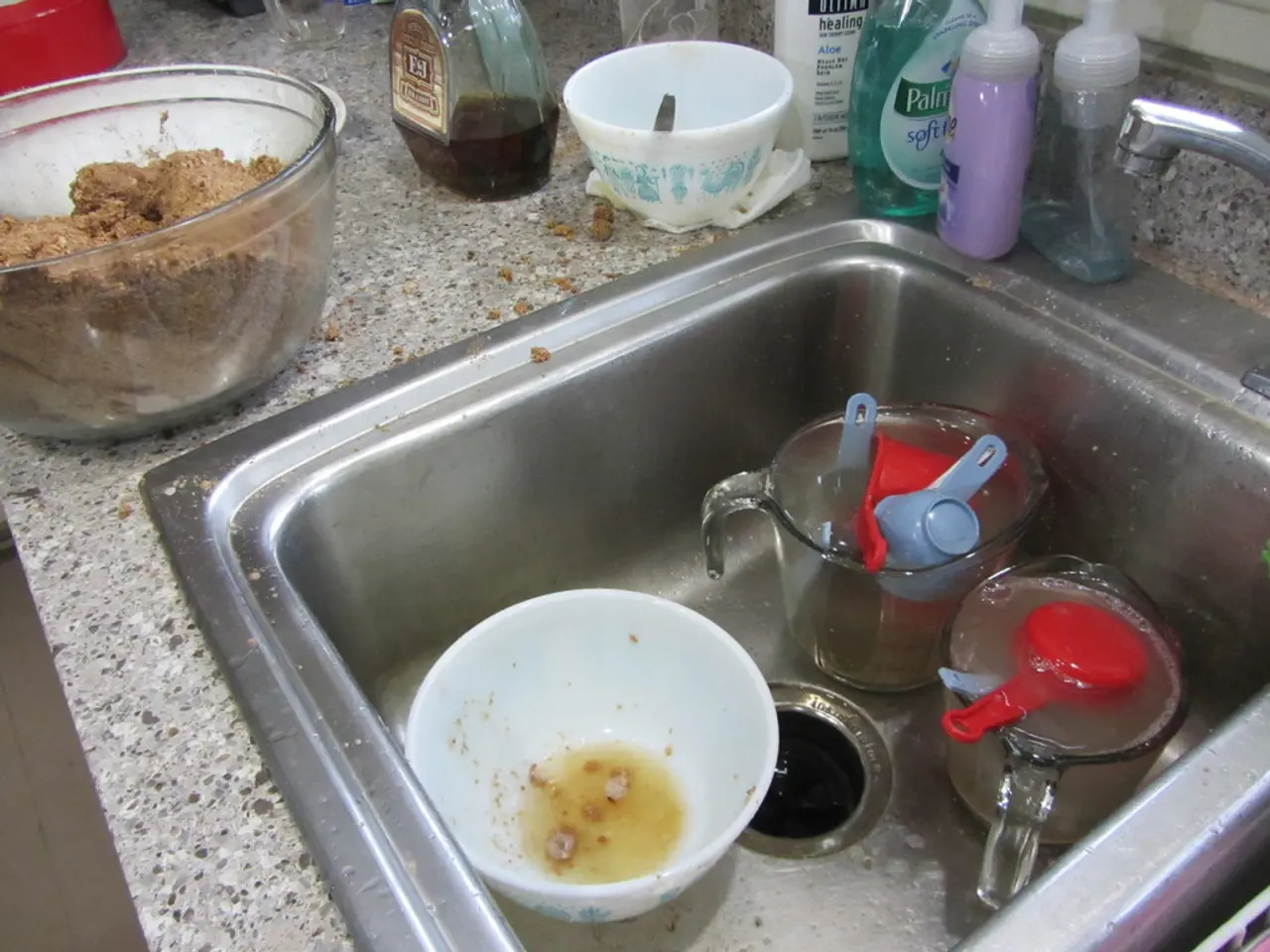Skin-boosting cream, soap, and hydrator championing self-love for skin
In the ever-evolving beauty industry, a new trend is emerging - the positive approach to acne and skin health. Artificial Intelligence (AI) is being leveraged to develop personalized, inclusive skincare solutions that cater to the unique needs of individuals, addressing the rising consumer concern of acne, especially due to frequent mask usage.
AI can analyze individual skin characteristics and acne triggers through advanced image processing and data-driven formulation generation. Systems use high-resolution photos and questionnaires to evaluate skin traits like sebum content, hydration, sensitivity, acne presence, and other parameters relevant to oily or acne-prone skin. AI algorithms then select optimal combinations from vast bioactive ingredient databases to formulate targeted anti-sebum creams or anti-acne washes, balancing potency and soothing properties tailored to individual needs.
This personalized approach ensures inclusion and diversity, with AI models incorporating diverse skin tones and types. This enables solutions that address varied skin triggers and sensitivities, ensuring effectiveness and reducing irritation risk. AI platforms also streamline clinical decision-making and consumer guidance, allowing ongoing skin condition tracking and adjustment of product recommendations to improve outcomes and maintain skin health.
Examples of such AI-powered personalization initiatives include Alma’s Universkin system, which formulates bespoke skincare using 18 essential bioactives in under a minute, and Clarins’ AI Skin Observer, which provides tailored regimens following skin diagnostics. Similarly, Mary Kay’s AI tools demonstrate the technology’s role in inclusion and precise matching.
Brands are also focusing on developing personalized, inclusive solutions for acne. They are encouraged to love the skin they're in and spread skin positivity. Anti-acne products should not only treat the condition but also prevent its resurgence. The development of anti-sebum cream, anti-acne washes, and soothing moisturizers is being guided by the need for inclusivity.
In vivo studies are being conducted to measure the effectiveness of these products on various skin types. One such active ingredient, TrikenolTM Plus, developed by Provital, has been found to reduce the area affected by inflamed lesions by 12% after 21 days of use, across all skin types.
However, acne isn't limited to young people; 40% of Brazilian adults have concerns about acne, and it is increasingly seen in the adult female population. The root of acne is linked to genetics and hormonal fluctuations. Inflammation can occur due to the colonization of the duct by Propionibacterium acnes and hyperkeratinization, leading to blocked pores and red, irritated lesions.
The COVID-19 pandemic has caused stress and anxiety for many, impacting skin health. Stress can lead to conditions such as excessive dryness, eczema, and acne. Therefore, it is crucial for the beauty industry to focus on spreading positivity, inclusion, and efficacy.
In China, 45% of men suffer from acne compared to 38% of women. This highlights the need for gender-specific solutions, with brands offering products for thicker male skin and sensitive skin profiles. Deep cleansing washes, topical treatments, and anti-sebum cream are expected to increase in product launches.
Technology is seen as key to innovation in the development of anti-acne products. A leading beauty brand has partnered with a microbial genomics research firm to assess the skin's microbiome levels and provide insights into the causes of breakouts.
In conclusion, the future of acne treatment lies in personalized, clinically informed, and inclusive skincare solutions. By embracing AI and understanding the unique needs of individuals, the beauty industry can effectively target the diverse mechanisms behind acne and skin sensitivities, while respecting individual skin diversity and beauty standards.
Science plays a crucial role in the development of active ingredients for health-and-wellness products, particularly in skin-care. AI algorithms analyze individual skin characteristics and acne triggers, selecting optimal combinations from vast bioactive ingredient databases to formulate targeted anti-sebum creams or anti-acne washes.
The pursuit of inclusivity is evident in the beauty industry, with AI models incorporating diverse skin tones and types. This allows for solutions that address varied skin triggers and sensitivities, ensuring effectiveness and reducing irritation risks in acne treatment.




